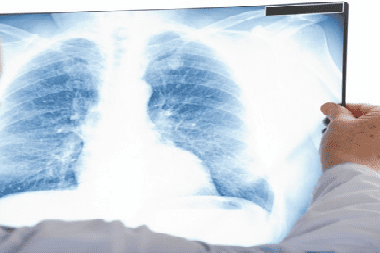Respiratory system >>>> Proteinosis of the lungs
Proteinosis of the lungs.

Proteinosis of the lungs or alveolar proteinosis refers to rare pathologies of lung tissue, which is characterized by the accumulation of a protein-lipid substrate on the inside of the alveoli, which disrupts the functional characteristics of the lung tissue.
Most often, the disease occurs in the male part of the population aged 30 to 50 years. By the nature of the course, proteinosis of the lung tissue can be acute or chronic. Distinguish between idiopathic proteinosis (primary) and alveolar proteinosis, which develops against the background of other diseases (secondary).
The mechanism of development of lung proteinosis is basically a violation of the production of pulmonary surfactant (protein - lipid), which normally forms a thin film and participates in metabolic processes, and also prevents the collapse of the alveoli.
Lung proteinosis signs:
- Unproductive or unproductive cough,
- Shortness of breath,
- General weakness,
- Sweating,
- Subfebrile temperature (up to 37.5),
- The gradual development of respiratory failure.
Alveolar proteinosis is diagnosed on the basis of X-ray examination; physical examination revealing crepitus, impaired vesicular respiration; sputum examination, which reveals an increased protein content; biopsy of lung tissue.
Treatment of lung proteinosis is carried out using bronchoalveolar lavage - washing the lung tissue with saline with enzymes and heparin. The prognosis for pulmonary proteinosis depends on the neglect of the pathological process, concomitant pathologies and the rate of progression of the disease. Complications of lung proteinosis - the replacement of fibrous lung tissue, the development of respiratory failure.

Read

Read



























